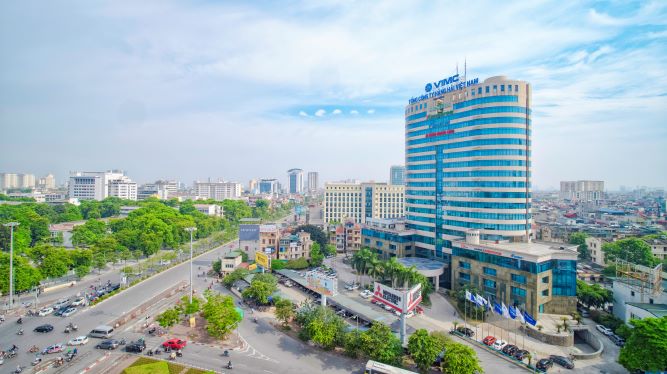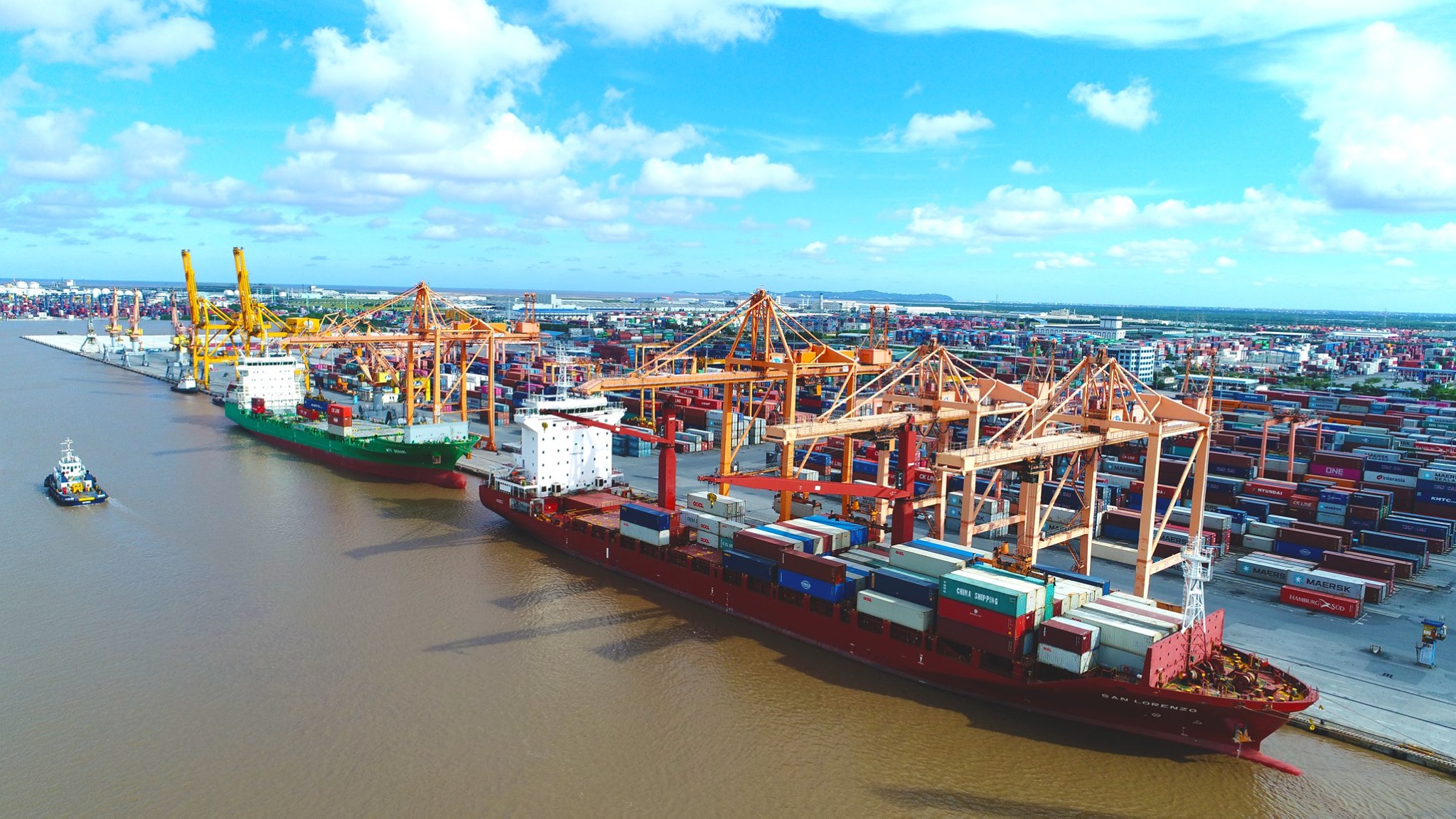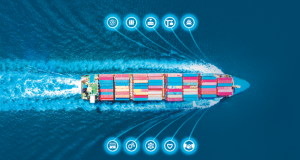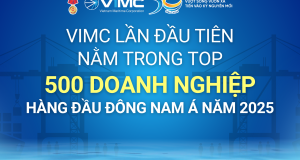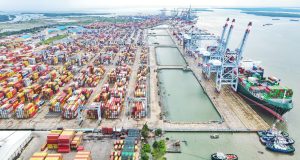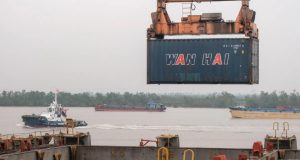After the transformation into a JSC with a new trading name and logo, the country’s shipping group Vietnam Maritime Corporation (VIMC) is setting sail towards the international market and sustainable development by focusing on a profitable seaport business.
VIMC headquarters in Hanoi
Together with the new trading name of VIMC, the corporation also has a new logo: The stylised globe with the white and blue lines representing the vision towards development beyond the continent and across the world (dark blue representing the sea and light blue the sky).
The change of the operation model into a joint stock company (JSC) with the new trading name is an important hallmark of the transformation in the operation of VIMC, helping to strengthen its resources to renovate business governance, increase service quality, improve competiveness, and ensure sustainable development.
Seaport – golden advantage of VIMC
As the leader in Vietnam’s maritime industry, VIMC now has 35 member companies, managing and operating over 13,000 metres of piers (nearly 30 per cent of the country’s total), capable of handling over 100 million tonnes of cargo (over 20 per cent of the country total). The corporation’s key seaports include Haiphong Seaport, Saigon Seaport, Danang Seaport, Quy Nhon Seaport, and the Cai Mep-Thi Vai port area which houses the Cai Mep International Terminal. This is VIMC’s special advantage, making it attractive for partners, clients, and investors in the long term.
According to VIMC’s development strategy, seaports will continue to boost IT application in operation, while investing in advanced equipment to shorten the freight forwarding process.
The corporation’s statistics from 2020 showed that its key seaports performed well despite the difficulties caused by COVID-19. In particular, Haiphong Seaport achieved all business results 10 days earlier than expected. Danang Seaport did the same in some important targets like container throughput, revenue, and profit hitting double-digit growth, with container throughput surpassing the record volume of 550,000 TEUs.
One year after its handover to VIMC, Quy Nhon Seaport fulfilled its yearly cargo target of 9.7 million tonnes by November 17, 2020 and reached the all-year record high of 11 million tonnes by the end of the year.
Regarding the performance of its joint venture seaports with foreign partners, SP-SSA International Terminal has reached an important milestone when handled container throughput hit 500,000 TEUs by mid-December 2020. Earlier, Cai Mep International Terminal (CMIT) successfully accommodated Maersk Line’s EEE vessel Margrethe Maersk 214,121 DWT equivalent a nominal capacity of close to 20,000 TEU. This is currently sailing the world’s oceans and is among the largest container ships in the world today.
This vessel is deployed on the 2M alliance’s TP6/Pearl service connecting Vietnam with US West Coast and calls at CMIT on a weekly basis.

